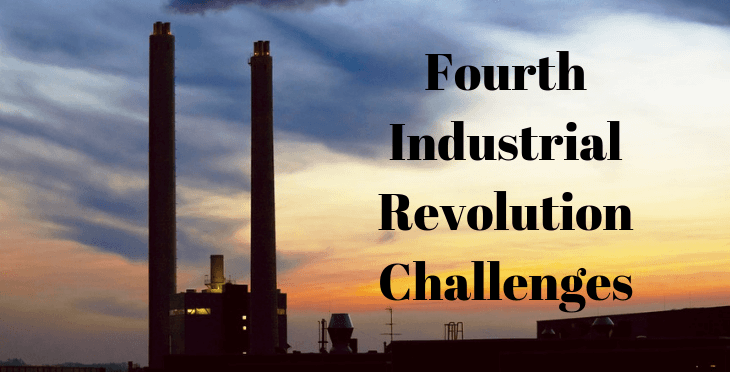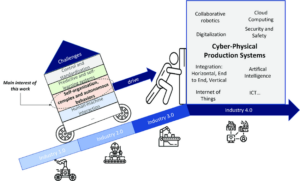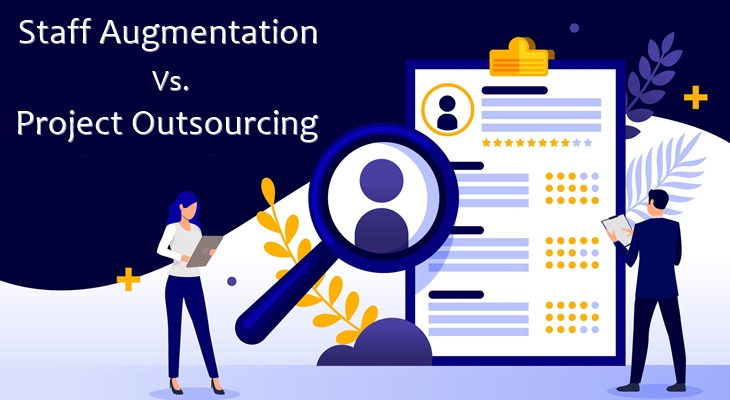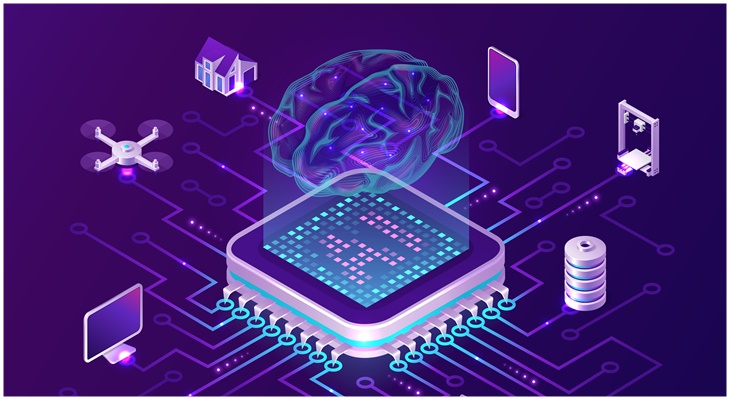The first step towards the industrial revolution took place in the year 1760 and lasted somewhere between 1820 to 1840.
From that stage, the world has seen immense growth in various sectors (Chemical, Iron, Textile, and many more).
The first three industrial revolutions brought up with them steam power, water power, assembly lines, electricity, computerization, and digitalization.
With every industrial revolution, the world had seen a drastic change in the economic, social, and political system which somewhat altered the course of humanity.
Some of the changes are visible to the world and others are not but they also have the same impact.
Come the 21st century and technological wonders of the fourth industrial revolution came to the forefront.
Today’s young generation should feel lucky to experience this change in era and ready for new opportunities and growth.
Fourth industrial revolution has the strength to increase the global income levels, improve the way of living & work, due to the adoption of the internet of things, the internet of systems, and cyber-physical systems.
The book “The Fourth Industrial Revolution” by Professor Klaus Schwab (Founder and Executive Chairman of the World Economic Forum) has explained that the new industrial revolution is fundamentally different from the earlier ones.
New technologies that are blending the physical, digital, and biological world are impacting economics that of industries. Even its changing the ideology about what is meant to be human.
But with counting all the opportunities Schwab also raised some concerns which are disturbing like there are chances that most organizations won’t be able to adapt to changes.
There are chances as well that the government could fail to implement and regulate new technology for the fulfillment of different requirements of citizens.
Challenges expected to come with the advent of the Fourth Industrial Revolution
In the past, almost every industrial revolution saw a section of people acquire a lot of wealth with the help of technology.
The world suffered from small but powerful groups which created chaos. New technologies can connect different societies and make sure about their surveillance and security but with the chances of physical and cyber-attacks.
Till today, it is considered that the fourth industrial revolution can be beneficial and concentrated towards the smaller groups.
This increasing inequality could create radicalization in other groups of society and there are chances that people could lose their faith from various institutions and could in turn lead to social fragmentation.
To avoid taking place of such scenarios in the future, leaders from both political and private ends need to take upon a deeper commitment to work towards development and equality.
Many of the authors who wrote on the industrial revolution boldly pointed out some of the disturbing facts about the previous industrial revolutions.
This is really shocking that till today at least 600 million people around the globe live without any interference of mechanization, which was introduced in the first industrial revolution.
Approx. one-third of the world population has no clean water to drink and more sadly they have no safe sanitization.
Around one-sixth of the population has no electricity which was introduced in the second industrial revolution.
In the third and the latest industrial revolution, it’s an achievement that 3 billion people have the access to Internet and the digital world but if you turn around there still are 4 billion people who have no access.
What so ever human has been able to achieve till now, it should be appreciated but with the coming industrial revolution, we make sure that technologies should be well distributed around the world and across our communities.
Threat to Employment
One of the biggest threats to our jobs in the future is “Artificial Intelligence”.
Somewhere deep down we know that AI is showing its full potential and productivity on our lives and as tech is improving day by day it will be a part of our lives in the future as well.
Many of the tasks that AI can perform better than humans, could be a negative force which has the potential to dislocate people from their jobs just like the Internet did 20 years back.
AI revolution is a major factor for the fourth industrial revolution which can be both an opportunity and a threat for the human race but moreover, it is beneficial for economic growth.
If you are less educated or have fewer skills then it could be a problem. But, workers in the factories can spend more time on their creativity and problem-solving tasks.
For both government and private sectors, it could be a challenge to educate and train people to adjust themselves to changes.
“Let us together shape a future that works for all by putting people first, empowering them and constantly reminding ourselves that all of these new technologies are first and foremost tools made by people for people.” —Klaus Schwab, The Fourth Industrial Revolution
Individual Privacy
Technological advancement could trouble you in the future when it comes to your privacy. Just imagine in future that there are floating cameras all around for surveillance of human activities as well as for natural disasters.
Such kind of technology could be a blessing for mankind but what if when you want some time alone without any camera surveillance, then it will be nothing more than an intrusion.
Even in present, we are living in a world where our personal information is tracked by various institutions. For example:
- A smartphone in your hand is tracking your location.
- Youtube knows what you are watching and the next advertisement show on it is from your previous searches or likes.
- Amazon and other eCommerce portals are constantly analyzing your purchase history to recommend you products and offers to increase their sales.
So, if you own a business and want to evolve yourself in the fourth industrial revolution, you should transparent about customer data collection practices and this prioritizes consumer privacy can win our loyalty.
Who to trust???
Why societies are dividing and there’s an instability in the world? It’s been observed that the trust of people in business, government technology is falling badly.
The fourth industrial revolution is coming with tons of new technologies and its major responsibility is to build people’s trust, for these technologies to be neutral.
AI and robotics are the future of the world where they are going to be friendly and making our lives better or they’re going to be fearful machines.
This could be a serious concern for the future that “Are citizens of the world going to trust various institutions and service providers who are collecting our data?”.
It’s difficult but not impossible, we have to make more transparency in our governance and the methods to manage technology which is just not the responsibility of the government or private companies but it’s me and you which can create the difference.
Conclusion
The industrial revolution is a necessity for economic and world growth but it's only functional when technology equally distributed around the world and across our communities.
The fourth industrial revolution is coming with tons of new technologies and its major responsibility is to build people’s trust but before that our various institutions, governments, even me and you have to prepare ourselves for the changes.
You May Also Like to Read:






